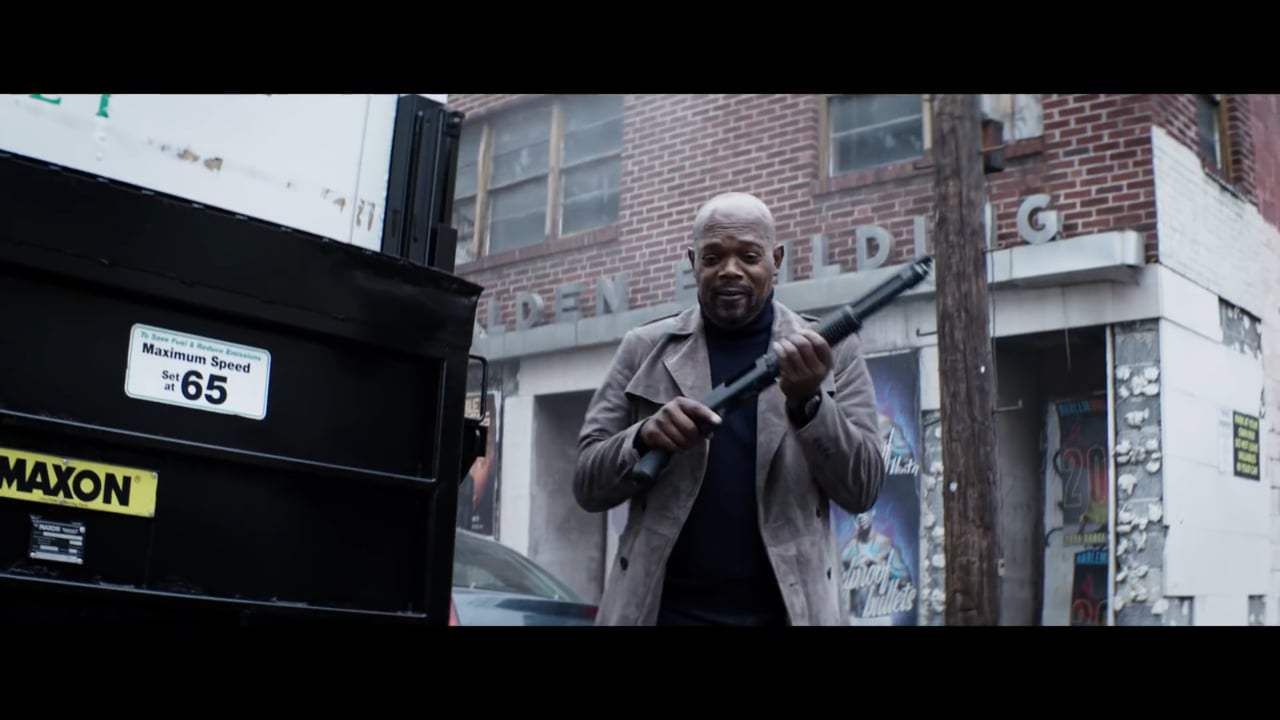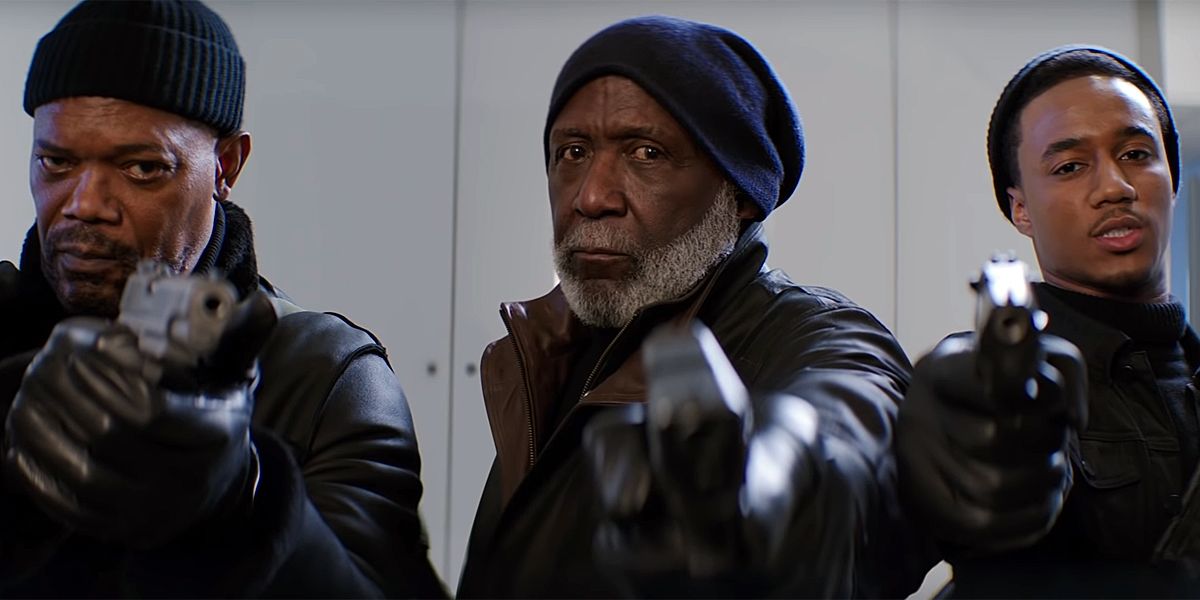Directed by Tim Story (Fantastic Four, Ride Along), Shaft picks up with John Shaft (Samuel L. Jackson) still operating as a private investigator, full of swagger despite his age, and his grown son JJ (Jessie Usher) working at the FBI. A data analyst who was raised by his single mother Maya (Regina King), JJ becomes a more sensitive and restrained man than his father, but when his best friend, a recently returned Army vet named Karin (Avan Jogia), dies from a suspicious overdose, he recruits his father to help him investigate the potential crime.
Shaft tries to play with every genre convention in the book, slowing down a solid cast with a dud of a script. Jackson and Usher have good chemistry, and the film's supporting cast is great. However, Shaft is bogged down by a tonal mishmash of fleeting self-awareness and cranky bitterness that only complicates the otherwise muddled plot. The film has the potential to be something great, which is why it's so sad that it isn't.
The main draw for most of the film is the two Shafts bouncing off one another. JJ's earnest empathy befuddles Shaft, and JJ isn't prepared for the level of casual swagger (and occasional brutality) his father throws down on the regular. The film embraces its R rating, giving Jackson a lot of F-bombs to drop. Jackson clearly loves being back in the role again, almost twenty years after the first Shaft remake. His occasional acknowledgment of JJ's skills works alongside smaller beats about him practically choking on coconut water. This slow understanding of his son even leads to possibly the most vulnerable moment the character has ever had.
The rest of the cast is likewise enjoyable. While JJ at times feels a little bland, his small outbursts of attitude and genuine politeness give Usher a lot to play with. Regina King doesn't get much to do as Shaft's bitter ex, but she plays the part for all it's worth. Meanwhile, Alexandra Shipp is great as JJ's best friend/love interest Sasha. She's a much more modern woman than any with which John Shaft has ever contended. She's not at all amused by his attempts to be charming, carries a gun and at one point even stops herself from rushing in and getting captured, as so many female characters do in films like this. There's a self-awareness to each performance, as actors explore and expose character tropes more than one might expect.
It's a shame the script can't decide what kind of story it wants to tell. Written by Kenya Barris (the creator of Black-Ish), the narrative tackles a lot: Islamaphobia, PTSD in veterans, drug cartels, opioids and organized crime, to name a few. None of it gels easily with the more character-driven material, and some of the plotlines are just outright dropped halfway through.
The overall mystery is needlessly complicated, as are the perfunctory story-beats that push JJ and Shaft into drama. Ideas like gentrification, identity and changing definitions of masculinity are brought up, occasionally with a deft touch. But most of the time, these ideas come up in the form of a disparaging Shaft one-liner about kids these days. It stops being a commentary on different generations and turns into an old man griping about Millennials -- possibly the least cool thing you can do, and therefore kind of antithetical to the concept of Shaft.
Shaft also can't stop itself from following the action tropes that it spends a great deal of time teasing. This flaw especially come to fruition in the third act, which shifts away from comedy commentary to generic action film. Recruiting the original Shaft (Richard Roundtree) should lead to even more exploration of the generational gaps. Instead, they just suit up and get into a shootout that plays exactly how you'd expect. Story directs the smaller characters beats with finesse, but the finale is beholden to action movies made thirty years ago, not inspired by them. It even comes at the expense of characters like Sasha, who somehow gets captured despite making a joke about that very trope moments before.
Shaft positions the titular hero as cool in the past, but kind of a problematic jackass in the present day. Shaft makes frequent gay jokes and talks about how women just want a man who will "control" them. It's an ugly look in 2019, and it's something the film brings up in what could be an interesting exploration of what "masculine" means now versus what it meant decades ago. But the film never really tries to resolve that arc, outside one moment of vulnerability that's more or less forgotten for the rest of the narrative. Shaft is happier to complain about the current generation than it is to explore the idea that maybe both can learn from one another. In trying to update the past for the modern day, Shaft gets lost in problematic nostalgia.
Opening June 14, director Tim Story's Shaft stars Jessie Usher, Samuel L. Jackson, Richard Roundtree, Alexandra Shipp, Matt Lauria, Regina Hall, Titus Welliver and Method Man.


